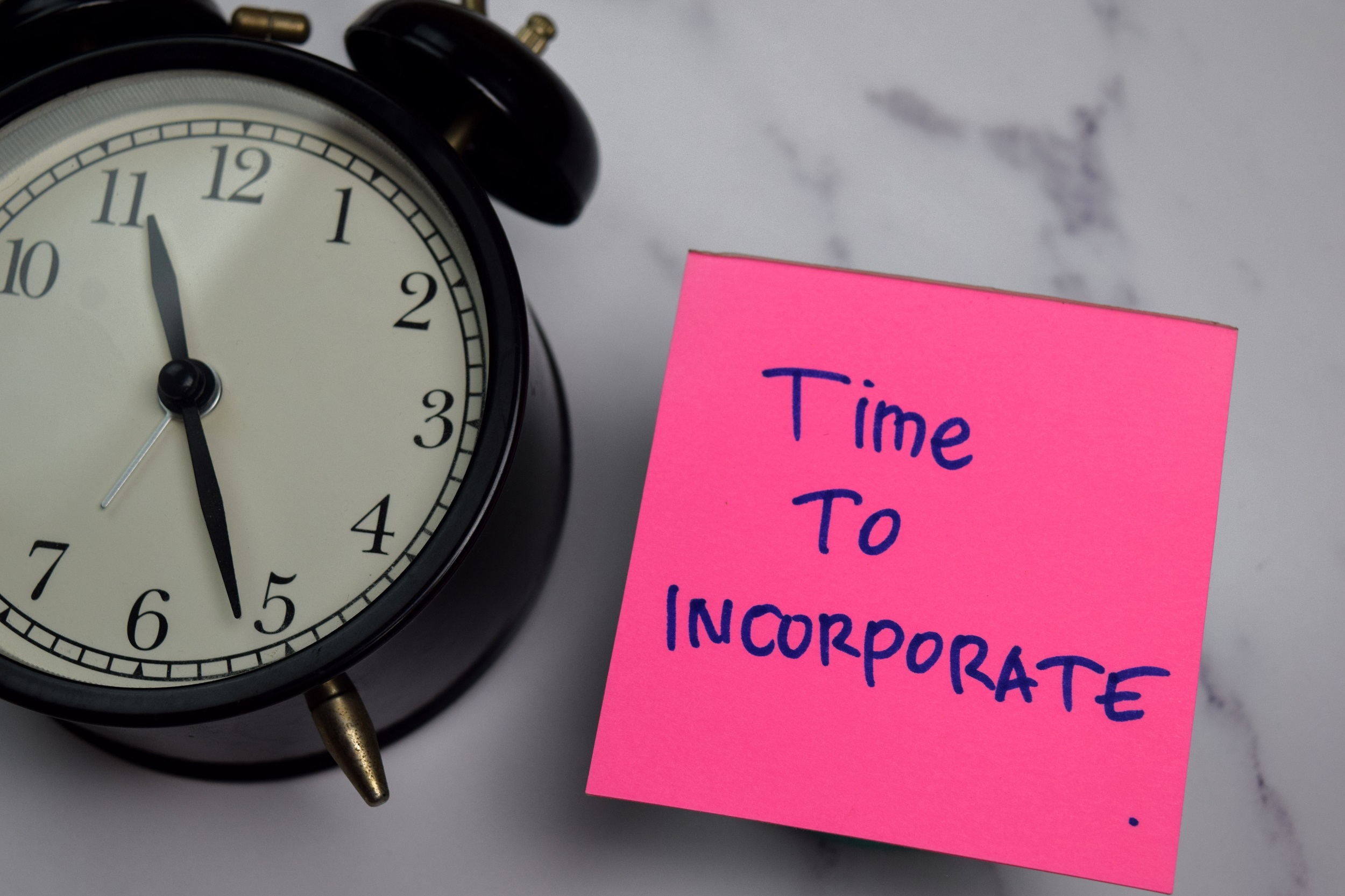When you’re launching a new business, there’s a lot to keep on top of. But if you’re starting a limited company, there’s even more to consider. If you’re registering your company, you’ll come across the phrase “date of incorporation” or “incorporation date” a lot.
According to Companies House, over 500 thousand companies register and incorporate every year. Companies House provides every limited company that registers with an incorporation date. You may be wondering what date of incorporation means and if there’s anything you need to know about it to run your business.
To help you get your business off the ground, we’ve put together this complete guide to your incorporation date. It explains what date of incorporation means, how it affects your business and key dates following incorporation.
What Does Date of Incorporation Mean?
A limited company’s incorporation date is the date it’s registered with Companies House. After registration, Companies House adds your business to their register. Once registered, companies in the UK become separate legal entities to the business’s directors and members.
This means that, from the date of incorporation, the limited company is:
- Able to buy property in the business’s name
- Responsible for all debts and liabilities.
When Can a Company Start Trading after the Incorporation Date?
As soon as a company registers and incorporates with Companies House, it can start trading. So once your business is a legitimate limited company, you’re ready to go and can start making your new business a success.
But some businesses choose not to start trading immediately. During registration, it’s possible to register a company’s trading status as “dormant” or inactive. This is usually for Corporation Tax purposes. A business can be “dormant” for an indefinite amount of time following incorporation.
This is an excellent option for new businesses that may currently be operating as sole traders. It allows you to protect a company name so that when your business is ready for incorporation, you can start with your business name of choice.
Where to Find Your Date of Incorporation
Once you incorporate your business, it’s easy to find your incorporation date if you misplace it. One of the easiest places to find it is on the public register of businesses online, which is free to access. Alongside your business’s date of incorporation, the register also lists other details, including:
- Company registration number
- Registered office address
- Names and details of directors, secretaries and people with significant control
- Annual accounts, charges and insolvency information
- Certificate of incorporation.
The certificate of incorporation is an important document, and you should do all you can to keep it safe. You’ll need to refer to and provide it while running your business. You may need to provide the document when:
- Registering for Corporation Tax
- Applying for finance
- Starting a business bank account.
Your certificate of incorporation contains the following information about you and your business:
- Company number
- Company name
- Proof your business incorporated under the Companies Act 2006
- The official seal of the Registrar of Companies
- Proposed registered office address
- Details of company directors and share allocation
- Incorporation date
- Memorandum of association.
Key Dates for Businesses after Incorporation
After you register your business, it becomes a separate legal entity. There are some key dates that you’ll need to mark on your calendar. These dates will be significant, and understanding them from the outset will help you keep on top of them.
- Accounting reference date (ARD) — Limited companies have to file their annual accounts once a year. Your ARD is the last day of the month in which you registered with Companies House. You can change this date if you wish to.
- Last accounts made up to date — If you’ve filed your annual accounts before, this date shows what period your accounts cover.
- Next accounts due date — Your accounts due date is the date your business’s annual accounts have to be complete. Failure to do so can result in Companies House closing your company.
Choosing Your Date of Incorporation
If you have yet to register your business with Companies House, it’s possible to choose your date of incorporation. Some companies choose to have a specific date of incorporation to align with their internal financial calendar. Businesses do this so that filing annual accounts is convenient.
If this is something you would like to do for your business, you must decide before registering. You will not be able to change your incorporation date once you’ve registered your company.
Need help registering your business? Mint Formations can help you register your business and walk you through every step of the process. Our company formations packages include arranging an incorporation date that works for your business for as little as £12.99.

